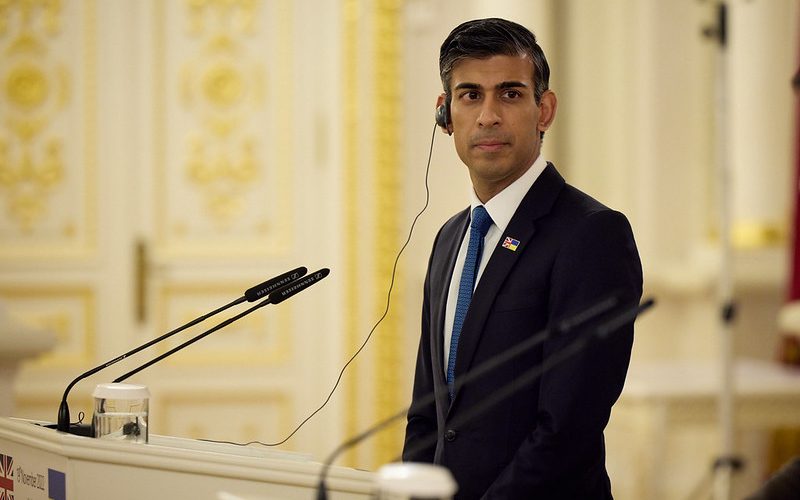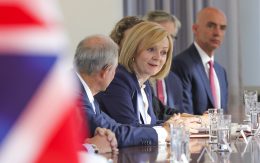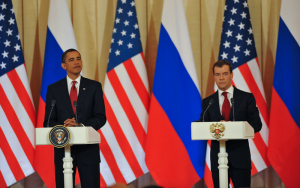‘Life is divine Chaos. It’s messy, and it’s supposed to be that way.’ (John Keats)
It need scarcely be said that the recent political turmoil in the United Kingdom has flamingly been vying for attention. One could be left under the impression that the coming and going of UK prime ministers occurs more frequently than the goals, which the English football team scored against Iran at the FIFA World Cup in Qatar. Apparently, after Ms Truss received a ‘red card’, it is Mr Sunak who is expected to score goals in the international arena. Nevertheless, in order to do that exquisitely, the Premiere League needs to be taken care of first.
One of the rather challenging tasks which lie before Prime Minister Rishi Sunak and his government is the restoration of British prestige on the global stage. Upon taking into consideration the different schools of thought, which adopt distinguished approaches to international relations analysis, this article examines a plethora of impending issues, which the UK is coming up against. We are going to contemplate a few Realpolitik postulates, which focus on the egoistic national interest and the accumulation of power and in the meantime we are going to look at liberalism paradigms with regard to international cooperation and the pursuit of mutual gain with the help of established institutions. We are also going to take account of some thought-provoking details through the prism of critical theory and discourse ethics, whereby epistemological assumptions give rise to questioning the trustworthiness of pre-established socially constructed structures as well as promulgate the enlargement of democratic participation and the abolishment of injustice.
Something seemingly harmless such as the mispronunciation of the name of the new British Prime Minister by the President of the United States Joe Biden may be interpreted as an unsettling sign, which albeit inadvertently, undermines the role of the UK on the international stage.
Biden mispronounced his name, calling him “Rashi Sanook” (Cameron-Chileshe et al, 2022). It is glaringly obvious that Joe Biden has not learnt from one of his most remarkable predecessors Franklin D. Roosevelt who made time to remember even the names of the car mechanics, whom he met. The renowned author Dale Carnegie accentuates the fact that ‘remembering the name of the elector means being a statesman. Forgetting it means showing disrespect.’ Even though he mentions the elector here, the fact that this applies to heads of government too is incontrovertible. Dale Carnegie also advises his readers to ‘remember that a person’s name is to that person, the sweetest and most important sound in any language.’ (Carnegie, 2019, p.121). This example takes on a symbolic meaning and it aims to give vent to the importance of earning respect in the international arena. In order to be worthy of this respect, however, Mr Sunak must demonstrate dogged determination at home and he needs to make it clear to his international partners that the UK will be reliable and consistent in its actions abroad.
Even though most of the hardships Britain is bound to tackle are virtually interwoven, task number one for Number 10 Downing Street is essentially dealing with the economic and financial crisis. Rising inflation, energy costs and other obstacles are incontestable prerequisites, which make space for a more realistic and pragmatic viewpoint, and that would possibly mean abandoning some exceptionally ambitious goals. According to the prominent scholar, Hans Morgenthau, realism believes in the possibility of distinguishing in politics between truth and opinion- between what is true objectively and rationally, supported by evidence and illuminated by reason, and what is only a subjective judgment, divorced from the facts as they are and informed by prejudice and wishful thinking (Morgenthau and Thompson, 1948, p.111). In light of these postulations, it is not inexplicable why Sunak withdrew from Liz Truss’s promise to raise defence spending to three per cent of the GDP by 2030 in response to Russia’s increasingly aggressive stance (Cameron-Chileshe et al, 2022). Consequently, the domestic economic situation, being the overriding issue for the time being, deters the UK government from undertaking drastic precautions in terms of defence spending.
Another foreign policy problem, which is capable of placing the United Kingdom between a rock and a hard place, is the relationship between the aforementioned and China. On the one hand, analysts tend to reiterate what the current UK Prime Minister said about China during his summer campaign. He described the most populated country in the world as “the biggest long-term threat to Britain and the world’s economic and national security.” (Courea, Webber, and Gallardo, 2022). As chancellor, on the other hand, Mr Sunak is said to have sought closer economic ties with Beijing (Courea, Webber, and Gallardo, 2022). This invariably delicate situation presupposes significant political insight and decision-making, based on rational calculations. Through carefully setting its foreign policy goals, the UK needs to estimate the potential losses, should UK-China trade relations deteriorate. After Brexit, this seems to be an ensuing issue and it is crucial that it is addressed judiciously.
Some other essential games, that the UK is anticipated to play in the international stadium concern the Southeast Asia region as well as the EU. When it comes right down to these particular relations, the liberal school of thought comes in handy. As far as Southeast Asia is concerned, London recognizes that the region is of crucial importance to the United Kingdom’s interests and that both sides should cooperate intensively. Citing a deep commitment to multilateralism and to strengthening institutions and the international order, the foreign policy strategy of the UK confirms that “the Indo-Pacific region matters to the U.K.: it is critical to our economy, our security and our global ambition.”(Southgate, 2022).
In relation to the EU, undeniably, there are still some immense problems, which were not resolved after the dramatic divorce. It is only natural that after forty-seven years of strong attachment such unexampled issues should occur. The Northern Ireland Protocol and the undesired risk of triggering Article 16 thereof continue to be a grinding impediment. When it comes to its relationship with the EU, the UK has always indulged in putting its foot down and adhering to unyielding positions. Nevertheless, rolling the red carpet for a trade war would be of nobody’s avail. Rather, what must be pursued zealously is a solution, which satisfies both sides’ interests, respects international law principles and does not entail exacerbation of the problems.
On 13 October 2022, the European Commission published the so-called bespoke arrangements to benefit Northern Ireland. They are followed by extensive discussions over the past months with the UK government, as well as outreach by the European Commission to political leaders, businesses, civil society and other stakeholders in Northern Ireland. It also puts forward ideas based on elements raised in the UK’s Command Paper published in July 2021. The package proposes further flexibilities in the area of food, plant and animal health, customs, medicines and engagement with Northern Irish stakeholders. It proposes a different model for the implementation of the Protocol, in which the flow of goods between Great Britain and Northern Ireland – in respect of goods destined to stay in Northern Ireland – is facilitated to a significant extent. This facilitation is enabled by a series of safeguards and increased market surveillance to ensure the goods do not move into the EU’s Single Market (European Commission, 2022).
Truthfully, the proposals in question demonstrate the eagerness of the EU to resolve the dreadfully unpleasant conflicts, which the current implementation of the Protocol entails. Hence, the UK is highly likely to find itself in the EU and its other international partners’ good books, provided that its government plays its cards wisely and reaches an agreement, which enhances the benefits for both sides. Resorting to positional bargaining always does more harm than good. Therefore, focusing on interests rather than arguing over positions might open up some unexpectedly fruitful discussions.
Discourse ethics, which lies at the heart of Jürgen Habermas’s philosophy, articulates the effectiveness of third-party facilitation and encourages the reversing of perspectives and reasoning from the other’s point of view. Roger Fisher and William Ury include the importance of this negotiating method in their book ‘Getting to Yes’. They maintain that ‘the ability to see the situation as the other side sees it, as difficult as it may be, is one of the most important skills a negotiator can possess. It is enough to know that they see things differently. If you want to influence them, you also need to understand empathetically the power of their point of view and to feel the emotional force with which they believe in it. It is not enough to study them like beetles under a microscope; you need to know what it feels like to be a beetle (Fisher and Ury, 1981, p.16). Critical theory inexorably favours the palpable participation of all civil actors- businesses, civil society, stakeholders and the like and calls for change in society through constantly reforming existing institutions and social structures in order to achieve justice and promote freedom and equality. As regards these paradigms, the crux of the proposals of the European Commission manifests itself namely through this comprehensive dialogue.
Another political and legal obstreperous tempest, which requires an attentive ear, results from the recent ruling of the Supreme Court of the UK, which concluded that the Bill drafted by the Scottish Government, which makes provision for a referendum on the question, “Should Scotland be an independent country?” relates to reserved matters and is outside the legislative competence of the Scottish Parliament. The Court expressly held that “Even if the referendum has no immediate legal consequences, it would be a political event with important political consequences [78-81]. It is therefore clear that the proposed Bill has more than a loose or consequential connection with the reserved matters of the Union of Scotland and England and the sovereignty of the United Kingdom Parliament.“ (Judicial Committee of the Privy Council website, 2022). From a purely legal standpoint, the reasoning of the Court sounds rather unequivocal. According to an article written by Juliette Biardeaud, such proposed acts and guides ignore the one central hurdle for a unilateral decision of the Scottish Parliament to hold a referendum: namely that such legislation risks falling out with its competencies (Biardeaud, 2022). Indubitably, in order for such a referendum to be untrammelled by any legal obstructions, relevant legislation should be adopted by UK Parliament. There is no denying, notwithstanding, that although the decision of the Court is considerably persuasive, the eruption of imminent legal and political volcanoes is hard to prevent.
Mira Kaneva (Ph.D. in International Law and International Relations and university professor at Sofia University, Bulgaria) examines some issues linked with secession. She raises the question of why sub-state nationalism or secessionism has had frequent manifestations in the last decade through referendums, demonstrations, petitions or other forms of civil mobilisation. Another question which arises is why in communities associated with progress and liberalism, fragmentation persists not only at a community level but also seeks political recognition. Partially, the answer can be found in critical theory since multinational communities were built on the history of interwoven narratives about their identity as ineluctably, there are some that resort to repression and humiliation practices, thus triggering resistance and desire for emancipation (Kaneva, 2022, p.193).
Admittedly, there are some glaring differences between the Scottish and the English legal systems and the issues, which follow from that have not remained unnoticed. For example, Lord Cooper, Lord President of the Inner House of the Court of Session, believed “Law is the reflection of the spirit of a people, and so long as the Scots are conscious that they are a people, they must preserve their law”. The influence of English law through the case law of the House of Lords worried some Scottish law Professors, such as George Moir. Professor Moir felt that the nature of Scots law was well suited to the “habits and character” of the Scots, with whom it had “grown over the centuries”. He was particularly concerned that its “integrity” could not be preserved if it were to be “weakened or superseded” by principles of English law (Biardeaud, 2022). To illustrate, one such difference can be pointed out in relation to the significance of parliamentary sovereignty in the English legal tradition and the distinct Scottish approach towards popular sovereignty. Scottish sociologist David McCrone maintains that “The Scottish doctrine of ‘popular sovereignty’ juxtaposed against ‘crown sovereignty’ as practised at Westminster may be more of an aspiration than a legal principle, but nonetheless, it coincides with the view that politics, and the Parliament, isn’t everything. The people are paramount.” Scottish judges, however, have continuously been cautious and prudent when dealing with British constitutional arrangements. It is also important to note that there is a distinction between legal and political nationalism, since Lord Cooper, for instance, was politically involved with the Unionists and in the meantime, he was a dominant figure in the legal nationalist movement, which strenuously defended the preservation and the uniqueness of the Scottish legal system (Biardeaud, 2022).
The examination of these details suggests that reconciling the idea of stability and integrity with the aspiration towards unobstructed democratic participation is no easy task.
In conclusion, returning to our football rhetoric, the match the UK is about to play in the international arena will certainly be intense, emotional and difficult. However, if Rishi Sunak’s team chases success enthusiastically, it needs a brilliant strategy, burning motivation and supportive fans.
Sources Biardeaud, J. R., (2022), The Continuation of Politics in the Courtroom: Scotland and Strategic Litigation, Revue Française de Civilisation Britannique [Online], XXVII-2 | 2022, Online since 15 June 2022, connection on 06 July 2022, Available at: https://journals.openedition.org/rfcb/9279, ( Accessed: 27 November 2022) Cameron-Chileshe, J., Yang, Y., Foy, H., Politi, J. (2022), Rishi Sunak faces steep learning curve on world stage, Financial Times [Online], Available at: https://www.ft.com/content/ffbe93ee-7672-4c5b-9dc6-208b10976b3c, (Accessed: 27 November 2022) Carnegie, D. (2019), How to win friends and influence people, Sofia: Publishing House KIBEA, translated from Bulgarian by author Courea, E., Webber, E., Gallardo, C. (2022), Wanted: A foreign policy for Britain’s Rishi Sunak, Politico [Online], Available at: https://www.politico.eu/article/wanted-foreign-policy-britain-uk-rishi-sunak-g20/, (Accessed: 27 November 2022) European Commission (2022), Protocol on Ireland/Northern Ireland: Commission proposes bespoke arrangements to benefit Northern Ireland, Available at: https://ec.europa.eu/commission/presscorner/detail/en/ip_21_5215, (Accessed: 22 November 2022) Fisher, R., Ury, W., (1981), Getting to yes. Negotiating an agreement without giving in, 2nd Random House Business Books, p. 16, Available at: https://ec.europa.eu/commission/presscorner/detail/en/ip_21_5215file:///C:/Users/user/AppData/Local/Temp/Getting_to_YES_Negotiating_an_agreement.pdf, (Accessed: 27 November 2022) Judicial Committee of the Privy Council website (2022), Reference by the Lord Advocate of devolution issues under paragraph 34 of Schedule 6 to the Scotland Act 1998 UKSC 31, Available at: https://www.supremecourt.uk/press-summary/uksc-2022-0098.html, (Accessed: 27 November 2022) Kaneva, M. (2022). Границите в международните отношения. Теоретични, нормативни и практически проблеми [Borders in International Relations. Theoretical, legal and practical issues], Sofia: Publishing House “Gutenberg” Morgenthau and Thompson, (2017), The Nature of the International System, pdf. Available at: A Realist Theory of InPolitics.pdf, (Accessed: 27 November 2022 Southgate, L. (2022), The Sunak Government and UK Foreign Policy in Southeast Asia, Available at: https://thediplomat.com/2022/11/hold-the-sunak-government-and-uk-foreign-policy-in-southeast-asia/, (Accessed: 27 November 2022)








Be First to Comment